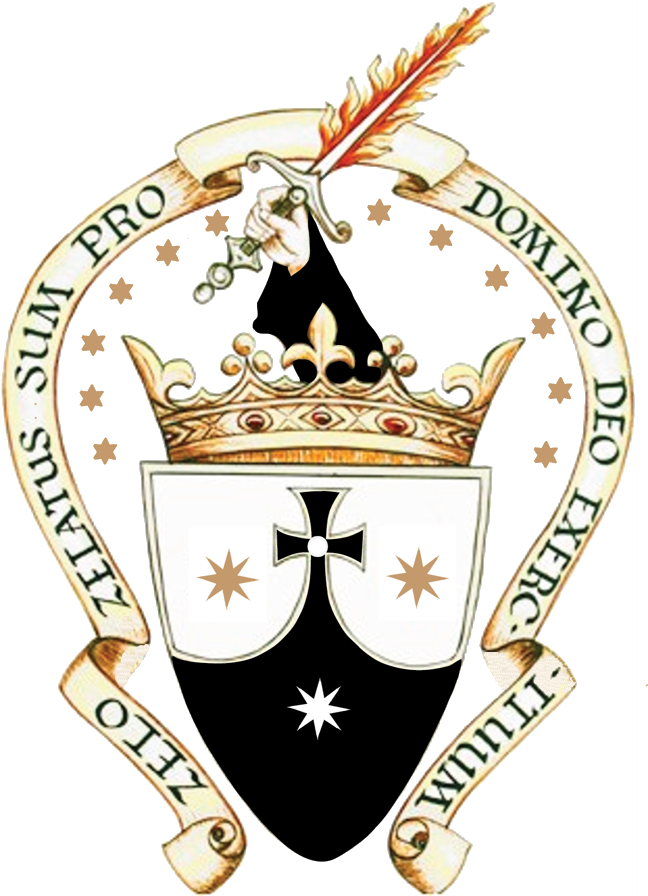Sacred Music
Gregorian Chant
Gregorian Chant is the chant of the Roman Catholic Church. Inherited from a long tradition.
Gregorian chant has a complex history and its early origin and evolution are largely unknown. If the elaboration of the Gregorian Chant was strongly influenced by the Jewish and Greek musical culture - in particular for its modality - it is above all a Latin chant.
An "ancient collection" of Ecclesiastical Chants with simple melodies was first built in the West around 3 to 4 centuries ago. This was based on recitations in the liturgy of early generations of Christians. A local repertoire developed in several regions: Roman songs, from Benevento (southern Italy), Milanese - that is to say Ambrosian - (northern Italy), Hispanics and Gallicans (in Gaul). The popes between the 5th and 7th centuries, in particular Leão Magno, Gelásio and Gregório Magno (to whom Gregorian chant owes its name), helped to organize the repertoire throughout the liturgical year.
Saint Hildegard of Bingen, Benedictine nun from Germany, on singing and the human voice:
"Let us remember," she wrote to the Bishop of Mainz, "that man wanted to rediscover the voice of the living Spirit that Adam had lost through disobedience, he who, before his absence, still innocent, had a voice similar to what the angels have for because of your spiritual nature. [...] This resemblance to the angelic voice he had in paradise, Adam lost; and that art with which he was gifted before the sin was so numb that on waking as if asleep from what he had seen in a dream, he became ignorant and insecure of it, after being deceived by the suggestion of the devil. And, in opposing the will of his Creator, he found himself shrouded in the darkness of inner ignorance because of his iniquity. But God, who preserves for beatitude, first the souls of the elect in the light of truth, decided for himself that, whenever he touched the hearts of certain men, pouring out on them the prophetic Spirit , he would return to them, with the inner Lights, something of what Adam had had before he was punished for his disobedience.
Thus, in order that man may enjoy that sweetness and divine praise which Adam himself enjoyed before his fall and which he could no longer remember in his exile, to urge him to seek them, the Prophets, instructed by this same spirit which they had received, they invented not only the psalms and the songs, which were sung to increase the devotion of those who heard them, but also various musical instruments, thanks to which they emitted multiple sounds so that - so many forms and qualities of these instruments and the meaning of the words that they heard and which were repeated, excited and performed by these means - they could be instructed internally.
This is why the sages and other scholars, imitating the holy prophets, also found certain kinds of instruments, through their art, to be able to sing according to the pleasure of the soul. And what they sang, thanks to the joints of their fingers and the inflections they practiced, they harmonized it, recalling Adam, formed by the finger of God, that is, by the Holy Spirit, in whose voice all the sound of harmony and all the art of music, before sin, was sweetness; had he remained in the state in which he was formed, mortal man's deficiency could in no way withstand the strength and sonority of his voice.
So when the deceitful devil realized that man, under divine inspiration, had begun to sing, and was thus led to remember the sweetness of the songs of the heavenly homeland, seeing that the machinations of his perfidy were reduced to nothing, he was terrified, he tormented himself and began to think and seek, according to the manifold resources of his wickedness, how could he henceforth not only multiply bad suggestions and dirty thoughts or various distractions in the heart of the Church, but also in the heart of the Church, wherever it was possible, by dissensions and scandals or by unjust orders, to disturb or hinder the celebration and the beauty of divine praise and hymns spiritual”.
